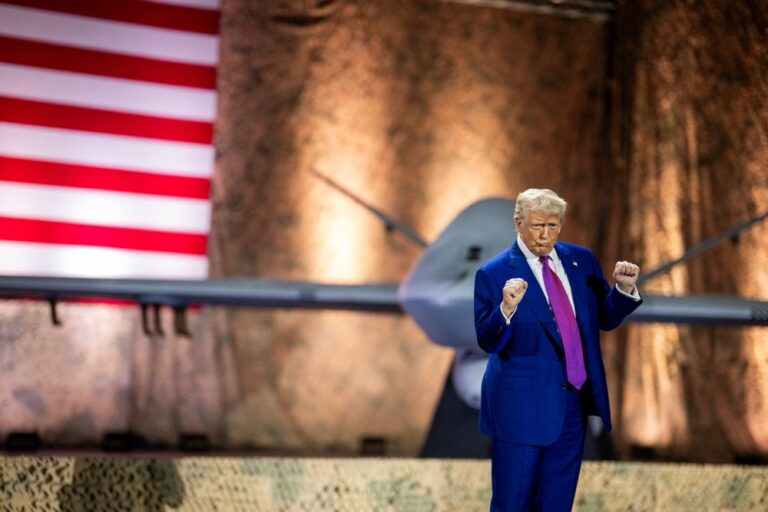Science, technology and innovation policy (STI) has shifted sharply in the United States under Trump 2.0. For decades, beginning with the Roosevelt era, federal policy balanced political change with institutional continuity and public trust. That balance no longer holds.
Mark Knell, Research Professor, NIFU
Trump’s return to the presidency—underpinned by the Project 2025 blueprint—marks a decisive break. His administration moves quickly to restructure agencies, slash environmental rules, and appoint loyalists to key scientific roles. These changes are already taking shape.
While Trump promotes innovative technologies like AI and quantum computing, his administration sacrifices scientific integrity for political expediency. Meanwhile, his embrace of cryptocurrency blurs the line between public policy and personal profit.
The Doge and U.S. Innovation Policy
Elon Musk takes on an outsized role in shaping federal innovation policy. As Trump’s unofficial tech advisor and figurehead of the new Department of Government Efficiency (DOGE), Musk pushes a market-first vision. He champions deregulation, privatized research, and accelerated investment in frontier technologies—serving corporate interests more than public goals.
This disruption carries consequences. Musk’s influence sidelines public institutions, weakens scientific oversight, and shifts policymaking toward investor-driven hype. Ethical review and peer evaluation fall by the wayside.
His promotion of Dogecoin, paired with federal clout, underscores how STI policy increasingly reflects financial speculation over public good. And his involvement has led to substantial government contracts for his companies, including SpaceX and Tesla, raising concerns about conflicts of interest and the blurring of lines between public policy and private enterprise.
Fareed Zakaria’s Warning
CNN’s Fareed Zakaria reminds us that American scientific dominance is not inherited— it’s built. For most of the 18th and early 19th centuries, the U.S. trailed Europe in scientific recognition. Immigration, geopolitical upheaval, and federal investment in basic research changed that. Agencies like the National Institutes of Health (NIH) and the National Science Foundation (NSF) thrive on a model of competitive funding and academic freedom.
That foundation is now eroding. The Trump administration attacks universities, restricts visas, and targets foreign-born re searchers. As China accelerates—publishing more, patenting faster, and climbing global rankings—the U.S. risks a reverse migration of talent. A Nature survey finds 75 percent of U.S.-based researchers considering leaving. This isn’t just a funding cut—it’s an unraveling of ambition.
Trump on Science
Trump treats science as a tool, supporting only what aligns with political or economic agendas. He touts AI and space tech but sidelines climate and public health research. Agencies once rooted in data-driven analysis now face political litmus tests.
The administration dismantles advisory boards, waters down peer review, and favors optics over substance. Science, once a cornerstone of policymaking, becomes negotiable. Its credibility depends not on evidence, but on political value.
NASA Under Trump—and Musk
NASA becomes a stage for Trump’s nationalist messaging and Musk’s commercial ambitions. Trump revives talk of Moon and Mars missions, reestablishes the National Space Council, and promises bold timelines detached from operational reality. More funding flows—but increasingly to private partners.
Musk, now NASA’s most important contractor, shifts the agency’s mission toward his own vision. His influence prioritizes speed, spectacle, and cost-saving, sidelining public oversight. With SpaceX at the center, U.S. space policy drifts from shared public mission to privatized frontier.
Trump on Academia and DEI Backlash
President Trump’s administration intensifies its campaign against higher education institutions, targeting diversity, equity, and inclusion (DEI) programs.
A newly established Justice Department unit initiates civil fraud probes into colleges with DEI policies, leveraging the False Claims Act to scrutinize federal funding recipients. Harvard University faces the revocation of $60 million in grants due to alleged antisemitic incidents and discriminatory practices.
The crackdown extends to over 50 universities under federal investigation for purported racial discrimination linked to DEI initiatives. Institutions like the University of Houston experience significant funding cuts, particularly in programs related to green energy and DEI. The administration’s actions prompt legal challenges from higher education groups, arguing that the executive orders infringe upon constitutional rights and threaten academic freedom.
These measures signal a broader shift in federal education policy, with the administration advocating for assessments based solely on merit and accomplishment, rejecting considerations of race or identity in admissions and scholarships.
The resulting atmosphere fosters uncertainty within academic institutions, as they navigate the implications of reduced funding and heightened scrutiny of their diversity programs.
The Republican War on Science—Redux
Chris Mooney’s The Republican War on Science warned of politicized attacks on scientific norms. Today, those warnings ring louder than ever. What began with climate denial and creationist activism has evolved into an all-out assault on expertise.
Under Trump, science is no longer a neutral force. It is recast as elitist, partisan, and suspect. Policymaking based on evidence is replaced by ideological posturing. America, once the world’s scientific leader, now risks becoming a case study in how a superpower dismantles its own engine of progress.
See also:
The American Science Policy Disaster
Trump er i ferd med å ødelegge Fulbright-programmet
Hvordan forsvarer vi forskningens frihet mot den totalitære lengsel?
Photo: Trump treats science as a tool, supporting only what aligns with political or economic agendas. Donald Trump i Doha i Qatar 2025. Foto SGSAN Mega NTB

